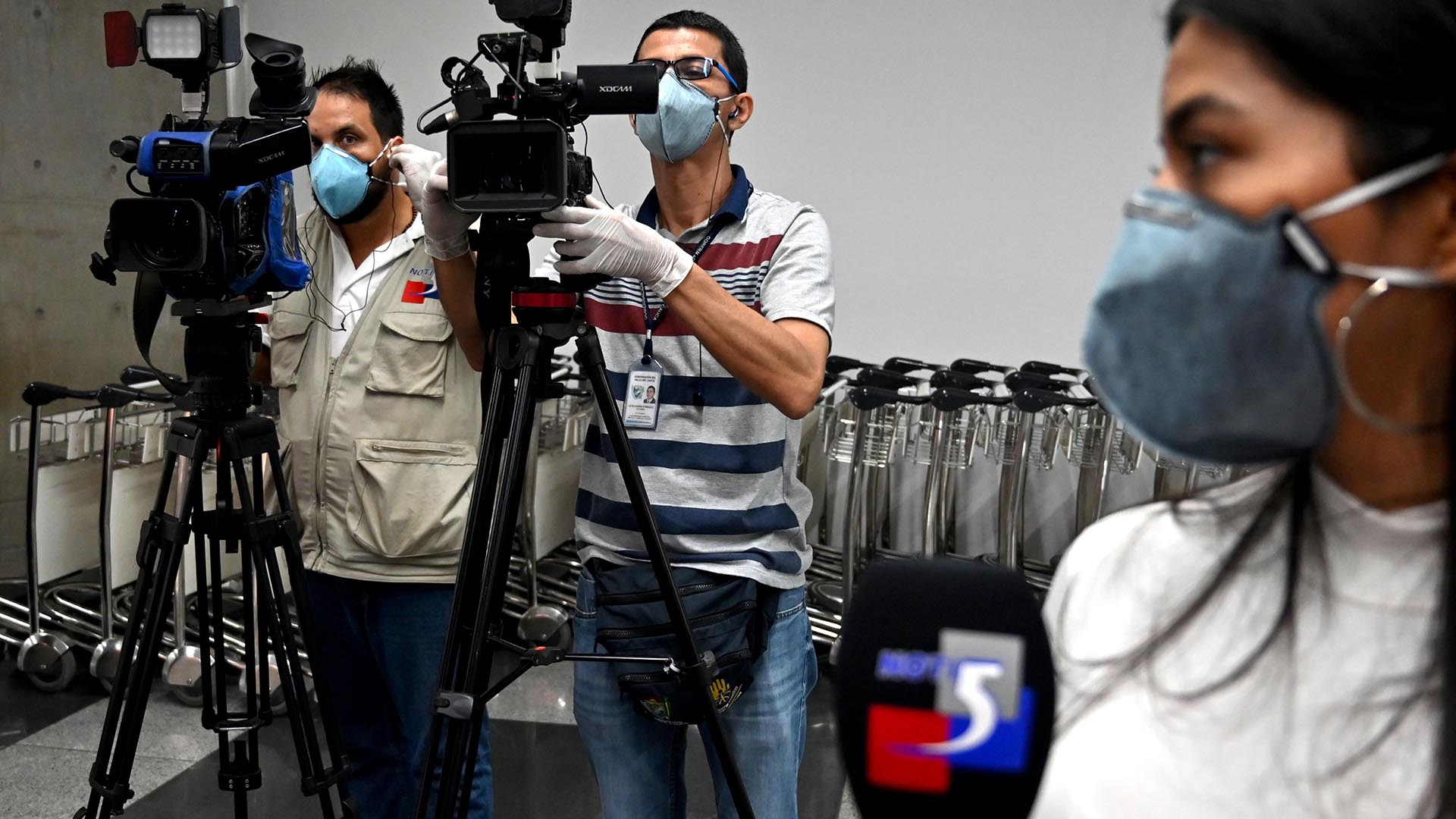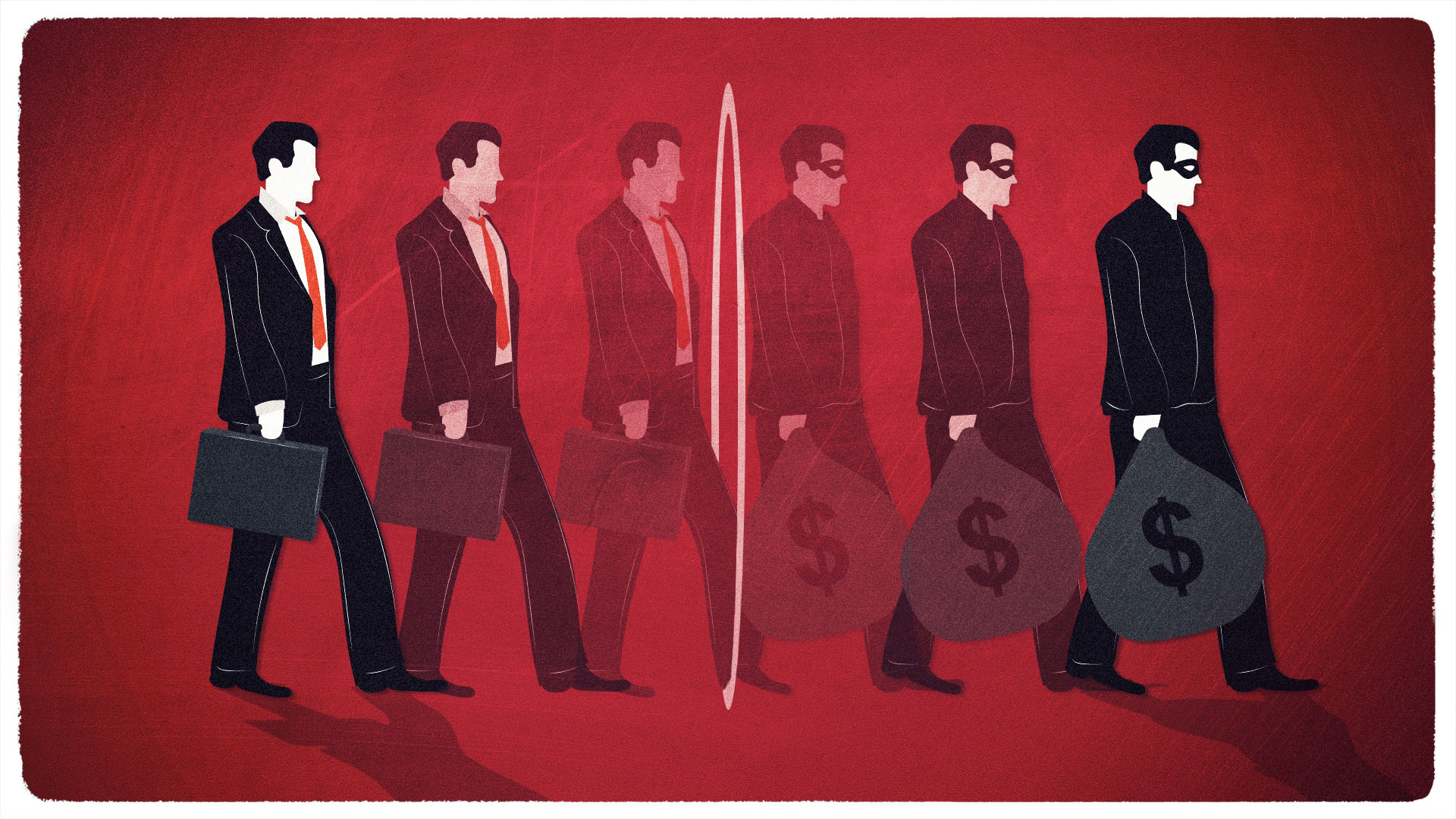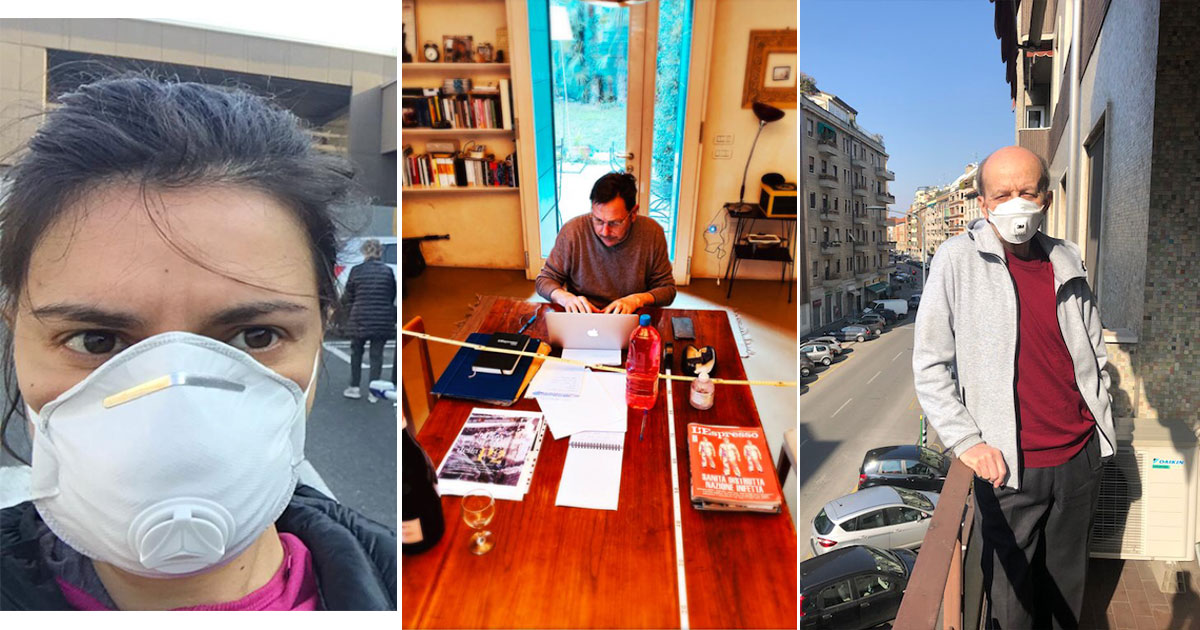Journalists covering the coronavirus are not only faced with the risk of contagion. They are battling secretive governments, restricted movement, misinformation and sources who are too scared to speak.
As we continue our press freedom series, and celebrate #GivingTuesdayNow this week, we asked our partners specifically about their efforts to cover the coronavirus. They were grateful to share their stories. Like us, they want you to understand the reality of reporting during a global crisis.
This is a time when journalism is more important than ever. Corruption and lack of transparency affect citizens’ lives. The coronavirus crisis is crippling newsrooms across the world – especially nonprofit investigative outlets. Despite the obstacles, you can count on ICIJ to support our partners throughout this crisis and beyond.
Have you faced any new barriers to your reporting while trying to cover coronavirus or other topics during the pandemic?
Karol Ilagan (Philippines)
This isn’t entirely new, but I get a sense that key sources who may be able to shed light on an issue are afraid to talk. They are very careful when talking to journalists because of possible repercussions.
The Philippine Government passed a law that gives the president emergency powers to enable him to quickly respond to COVID-19. This law includes a provision penalizing “fake news,” which can easily be used by those in power to file complaints against individuals. This is the latest in the series of threats that the current administration has made against the Philippine press.
Marcos García Rey (Spain)
I covered the pandemic topic for one-and-a-half months. The main barrier I found was the poor quality of data provided by central and regional authorities. There is a notable lack of transparency in the publication of data and information. In addition, data on the pandemic is poor from both a qualitative and quantitative perspective.
It is very revealing about the current situation that the government transparency website – where Freedom of Information (FOIA) requests are processed – is not operational during the coronavirus crisis. Another important information barrier at this time is that human sources do not want to talk for fear of losing their jobs in the midst of a serious economic crisis.
Read García Rey’s profile and follow him on Twitter.
Andras Petho (Hungary)
The government issued an order that prohibits the hospitals from giving out information. Only the government body in charge of the epidemic can answer questions about how the healthcare system is handling it.
In addition, the governing majority approved a law that threatens jail terms of up to five years for those who spread false information that hampers the fight against the pandemic. Some see this as a way to further silence independent news outlets that have been questioning the preparedness and the efficiency of how the government is handling the crisis. So far, however, no journalist has been prosecuted and the government denies that the law targets journalists.
Read Petho’s profile and follow him on Twitter.
Francisca Skoknic (Chile)
The daily conferences from the Ministry of Health about COVID-19 are quite long, but the press is only allowed to ask a few questions, which limits the possibility of inquiry and as a result, the quality of the information that citizens receive gets affected. Even though authorities give interviews about the topic regularly, the relationship with the Health Minister has been tense on some occasions and he has said that the work of the press was to sell by fabricating lies.
In general, the conditions of the pandemic put restrictions on reporting to the extent that journalists try to do the largest amount of work remotely to protect their health. The precautions made a lot of sense after the start of the pandemic, when a press conference of regional authority in the south of the country ended up with eight journalists infected, one of which was in a serious condition.
Read Skoknic’s profile and follow her on Twitter.

Anuška Delić (Slovenia)
No, if one discounts the severe social media attacks by public officers and coalition sympathizers, and the smears published by fake news producing media controlled by the governing party, and by Hungarian enterprises from the closest circle of the Prime Minister of our neighboring country, Viktor Orbàn.
Read Delić’s profile and follow her on Twitter.
Alberto Arellano (Chile)
I have tried to get interviews (or at least official versions through press officers) with the Health Ministry, so they can provide responses to the journalistic findings that expose situations that could be risky or delicate in the management of the crisis (overpricing; critical supplies that don’t match with official numbers). After waiting several days, the interviews are denied or simply forgotten.
Read Arellano’s profile, and follow him on Twitter.
Alejandra Xanic and Marcela Turati (Mexico)
The temporary suspension of the public information offices has resulted in a new obstacle to access information.
It is not our situation, but we know that pressures on journalists have increased, especially on photographers trying to cover the news at the hospitals or at doctors demonstrations. They are suffering attacks or obstruction of their work by security officers. One of the freelancers who was working on a story with us was affected.
The environment is also polarized as the presidential messages have been hostile to the press.
Follow Alejandra Xanic and Marcela Turati on Twitter.
What kind of pressures are you facing as a consequence of the coronavirus? Is the government restricting access to information or otherwise?
Anuška Delić (Slovenia)
This government began its mandate almost simultaneously with the outbreak of COVID-19 in Slovenia. Once it began procuring massive amounts of protective equipment under emergency procedures at the end of March it was revealed by the media, Oštro among others, that this procurement is taking place in very opaque circumstances and that only scant information and documents were available to the public on the national procurement portal which was against the law.
In a few weeks, this changed, and public information is now greater, but so are suspicions of wrongdoing. The most worrisome aspect of this government’s treatment of the media is its obvious, currently ongoing, drive to politically take over the public broadcaster and a complete disregard for the media industry’s specific needs resulting from the pandemic.
Francisca Skoknic (Chile)
As in many countries, health authorities provide daily reports on the amount of sick and deceased people, but through different civil society organizations and academic groups, the transparency has been questioned and calls have been made for the delivery of more complete, detailed, timely information provided in more manageable formats.
Guilherme Amado (Brazil)
President Jair Bolsonaro created a provisional executive order changing the rules regarding the Law of Information Access (LAI, Brazil’s version of the Freedom of Information Act). The goal was to stop all the LAI deadlines during the pandemic, arguing that many public officers were working from home, so it would be impossible to respect deadlines. However, the Supreme Court suspended it, and Congress will probably not approve that. In Brazil, Congress must approve provisional executive orders. In some cities, like Manaus, the capital of Amazonas, the main state of the Amazon, the mayors are not allowing reporters entering cemeteries, to see the improvised burials.
Read Amado’s profile and follow him on Twitter.
Karol Ilagan (Philippines)
FOI [Freedom of Information] has become a COVID-19 casualty in the Philippines. While information about the government’s response to the pandemic is being made available by lead agencies (as they should), access to information, in general, is at a standstill given that many agencies had to close offices during the lockdown.
The Presidential Communications Operations Office (PCOO), which implements President Rodrigo R. Duterte’s FOI policy, has suspended responding to FOI requests filed during the quarantine period. FOI operations in other offices have also been suspended even though online work in the private sector, media, and civil society continues. This means a delay in information access.
For journalists working on stories during the lockdown, this means having to rely on officials for information and having limited ways of verifying information. Finding ways to help the most vulnerable during this global health crisis is imperative, but I can imagine a lot of other things happening in the background. Journalists need to be even more resourceful now to do investigations.

Stefan Melichar (Austria)
The main problem is the further deterioration of the economic situation. Cost cutting puts pressure on investigative journalism. Another threat could be the tracking of people’s movements or social contacts through mobile phone data, which is a measure considered by many countries. It might help contain the pandemic, but it could also raise concerns with whistleblowers or other sources, if it is still possible to meet a journalist in complete confidentiality.
As there is no freedom of information act in Austria, the government probably is not restricting access to information more than in non-coronavirus times. The problem is that government information in Austria is always restricted. But the coronavirus crisis once more highlights the urgent need for freedom of information. Currently, it is unclear on which factual basis the government is taking far reaching decisions and curbing basic rights. Information on state aid given to companies is restricted. And it is unclear how the procurement of certain goods needed to fight the pandemic is handled.
Follow Stefan on Twitter.
Mary Triny Zea (Panama)
As a result of the coronavirus, the government has done million-dollar emergency contracts that don’t comply with the principles of publicity and transparency that are required by Panamanian laws on public contracts.
This has activated civil society monitoring. For example, a group of citizens sent a letter to the Infrastructure Minister to ask for information about the construction of a hospital for patients with COVID-19 that cost more than 6 million dollars and of which we don’t have the details.
The Fundación para el Desarrollo de la Libertad Ciudadana, the Panamanian chapter of Transparency International, has requested the authorities be transparent in the use of public money to avoid clashes of economic interests, abuse of prices and politicization in the delivery of resources to the more affected ones by the Pandemia.
The creation of a digital centralized space where all the information on the budget executions of all the money used to address the emergency, purchases and direct contracts assigned is shared, is one of their recommendations.
Read Mary Triny Zea’s profile and follow her on Twitter.
Alberto Arellano (Chile)
There is a problem of data transparency that prevents knowing the real magnitude of the spread of the pandemic in Chile. General non-disaggregated data is presented and delivered. The communications channels (press officers) from the ministries that are at the forefront of the pandemic (Health, principally) are not working properly. They are not managing the schedule of interviews nor are they providing answers to the important findings that investigative journalists are obtaining and that require their responses. There is the secrecy that responds to an attempt from the government to centralize the information and not disclose too much about the strategy that is being followed to fight the pandemic, nor disclose the real results of this management.
In the governmental palace (La Moneda) there are daily press conferences to inform about the spread of the virus (infected, recovered, deceased). Then a limited round of questions is offered, that gives little space to ask follow-up questions. There was an accusation from journalists from a tv station that said that in one of those press conferences the microphone had been taken away from them so they would not ask questions on an ultra sensitive topic: mechanical ventilators. The same government, responding to different journalistic investigations that have questioned the real number of mechanical ventilators available in Chile, has delivered a string of contradictory and confusing versions.
Alejandra Xanic and Marcela Turati (Mexico)
Our first story was about the disparity in the governmental transparency because each entity in the country defined what information it was giving to the country and what information it was restricting. A third part of society stayed uninformed about basic aspects such as in which part of their states there were people who have gotten the virus.
Even though there are daily press conferences in Mexico to inform about the development of the virus and the press is allowed to ask questions, it is notorious that the data that is made publicly available doesn’t always match with the data that each state has. The databases that have been released have inexplicable mistakes. What is announced and what is denounced by medical staff and patients’ relatives is very different.
The transparency offices, that are the natural way to make freedom of information requests to the government, have been suspended indefinitely and only reopened for some essential areas.



